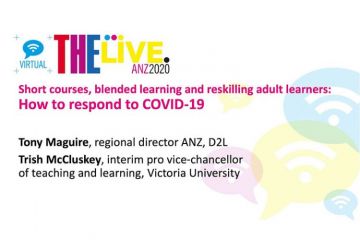A scheme to target school-children for university places run by the University of Newcastle upon Tyne was promised Pounds 1.7 million this week. It was one of 70 projects to raise participation by under-represented groups that shared Pounds 9 million in special funding.
"As more students from non-traditional and disadvantaged backgrounds succeed in further education, it is essential that we build ladders to higher education that they can climb. It is equally essential that higher education reaches out to and embraces these students," said David Melville, chief executive of the Further Education Funding Council.
A project to help disadvantaged young people in Merseyside into higher education will get more than Pounds 880,000 over three years. The University of Liverpool initiative aims to build relationships with schools, colleges, lifelong-learning partnerships and support agencies. It will also "support and empower parents to enable disadvantaged young people to progress to higher education".
Targeting rural communities is the aim of a project run by the University of Lincolnshire and Humberside. It won Pounds 3,000 to pay for a network of educational advisers in regional access centres. The network will target second-chance learners and those with limited access to learning due to isolation.
A project led by the University of Birmingham received funding to reach out to Bangladeshi and Pakistani women through higher education courses at community-based centres. It builds on a study conducted earlier this year to assess the demand for single-sex higher education courses.
Art, design and performance will be used to reach out to under-represented groups in a project run by the London Institute.
The largest grant, Pounds 2.2 million, went to the Yorkshire and Humberside Universities Association - 15 institutions in an equal regional partnership. The consortium, set up to widen participation, received Pounds 210,000 last year. The new money will provide additional funding from 2000-02.
The money comes from the Higher Education Funding Council for England, which is supporting projects over three years, and a joint HEFCE and FEFC fund that will run this academic year.
Register to continue
Why register?
- Registration is free and only takes a moment
- Once registered, you can read 3 articles a month
- Sign up for our newsletter
Subscribe
Or subscribe for unlimited access to:
- Unlimited access to news, views, insights & reviews
- Digital editions
- Digital access to THE’s university and college rankings analysis
Already registered or a current subscriber?








